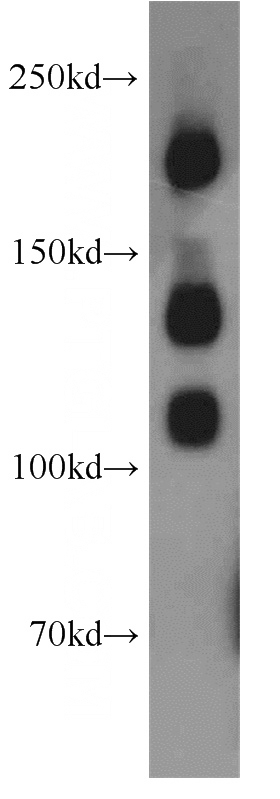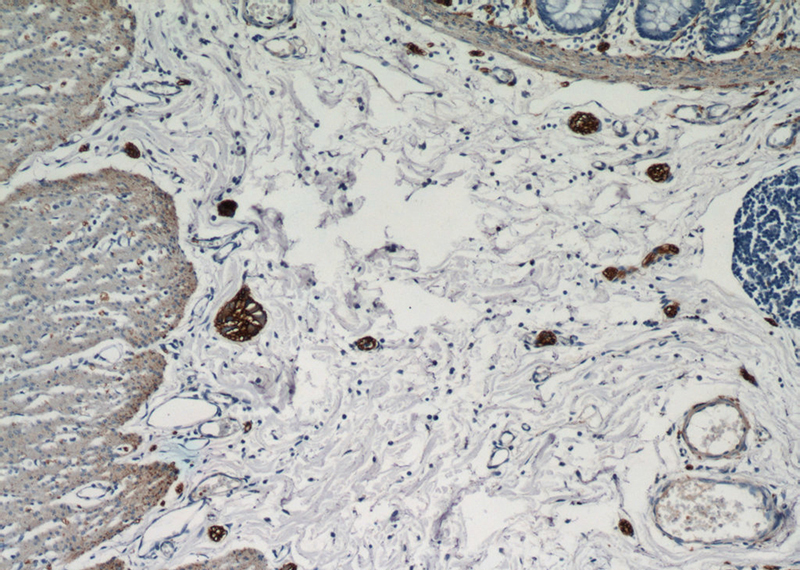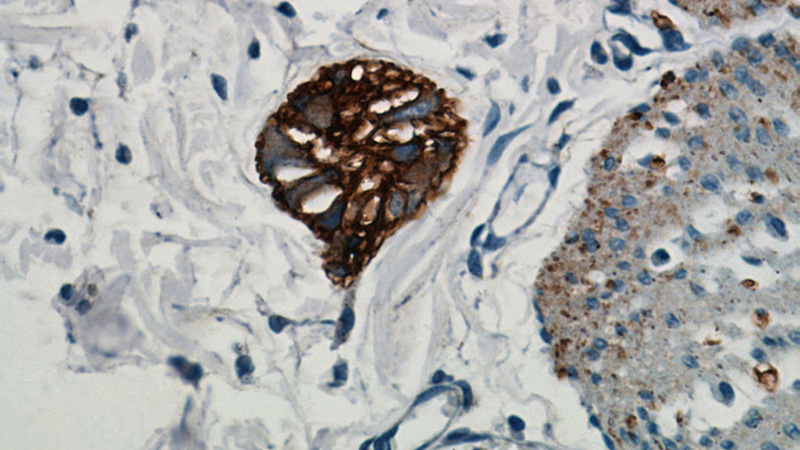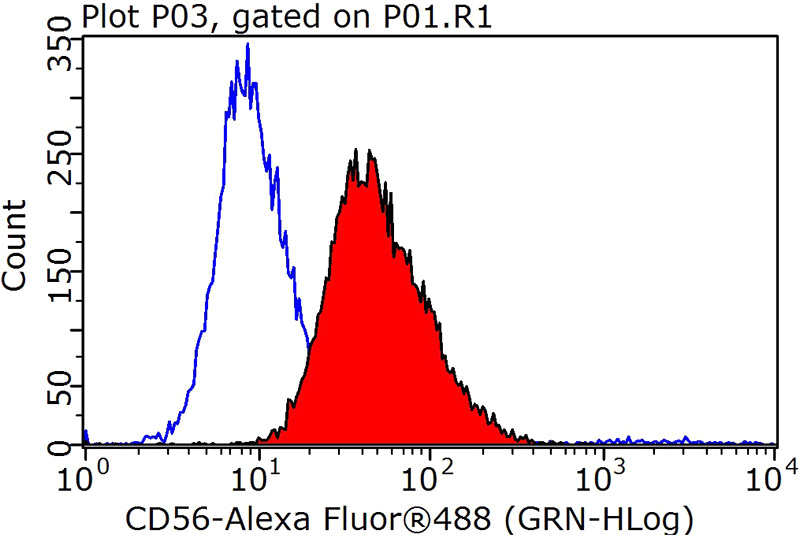-
Product Name
NCAM1/CD56 antibody
- Documents
-
Description
NCAM1/CD56 Rabbit Polyclonal antibody. Positive WB detected in mouse brain tissue, mouse cerebellum tissue, rat brain tissue. Positive IHC detected in human colon tissue, human brain tissue, human liver tissue, human lung cancer tissue, human spleen tissue. Positive FC detected in SH-SY5Y cells. Observed molecular weight by Western-blot: 120 kDa, 140 kDa, 180 kDa
-
Tested applications
ELISA, WB, IHC, FC
-
Species reactivity
Human,Mouse,Rat; other species not tested.
-
Alternative names
CD56 antibody; MSK39 antibody; N CAM 1 antibody; NCAM antibody; NCAM 1 antibody; NCAM1 antibody
-
Isotype
Rabbit IgG
-
Preparation
This antibody was obtained by immunization of NCAM1/CD56 recombinant protein (Accession Number: NM_181351). Purification method: Antigen affinity purified.
-
Clonality
Polyclonal
-
Formulation
PBS with 0.02% sodium azide and 50% glycerol pH 7.3.
-
Storage instructions
Store at -20℃. DO NOT ALIQUOT
-
Applications
Recommended Dilution:
WB: 1:500-1:5000
IHC: 1:20-1:200
-
Validations

mouse brain tissue were subjected to SDS PAGE followed by western blot with Catalog No:113027(NCAM1 antibody) at dilution of 1:300

Immunohistochemical of paraffin-embedded human colon using Catalog No:113027(NCAM1 antibody) at dilution of 1:50 (under 10x lens)

Immunohistochemical of paraffin-embedded human colon using Catalog No:113027(NCAM1 antibody) at dilution of 1:50 (under 40x lens)

1X10^6 SH-SY5Y cells were stained with 0.2ug NCAM1 antibody (Catalog No:113027, red) and control antibody (blue). Fixed with 90% MeOH blocked with 3% BSA (30 min). Alexa Fluor 488-congugated AffiniPure Goat Anti-Rabbit IgG(H+L) with dilution 1:1000.
-
Background
Neural cell adhesion molecule 1 (NCAM1, also known as CD56) is a cell adhesion glycoprotein of the immunoglobulin (Ig) superfamily. It is a multifunction protein involved in synaptic plasticity, neurodevelopment, and neurogenesis. NCAM1 is expressed on human neurones, glial cells, skeletal muscle cells, NK cells and a subset of T cells, and the expression is observed in a wide variety human tumors, including myeloma, myeloid leukemia, neuroendocrine tumors, Wilms' tumor, neuroblastoma, and NK/T cell lymphomas. Three major isoforms of NCAM1, with molecular masses of 120, 140, and 180 kDa, are generated by alternative splicing of mRNA (PMID: 9696812). The glycosylphosphatidylinositol (GPI)-anchored NCAM120 and the transmembrane NCAM140 and NCAM180 consist of five Ig-like domains and two fibronection-type III repeats (FNIII). All three forms can be posttranslationally modified by addition of polysialic acid (PSA) (PMID: 14976519). Several other isofroms have also been described (PMID: 1856291).
-
References
- Tsuchiya A, Lu WY, Weinhold B. Polysialic acid/neural cell adhesion molecule modulates the formation of ductular reactions in liver injury. Hepatology (Baltimore, Md.). 60(5):1727-40. 2014.
- Montavon G, Jauquier N, Coulon A. Wild-type ALK and activating ALK-R1275Q and ALK-F1174L mutations upregulate Myc and initiate tumor formation in murine neural crest progenitor cells. Oncotarget. 5(12):4452-66. 2014.
- Gillon A, Sheard P. Elderly mouse skeletal muscle fibres have a diminished capacity to upregulate NCAM production in response to denervation. Biogerontology. 16(6):811-23. 2015.
Related Products / Services
Please note: All products are "FOR RESEARCH USE ONLY AND ARE NOT INTENDED FOR DIAGNOSTIC OR THERAPEUTIC USE"
